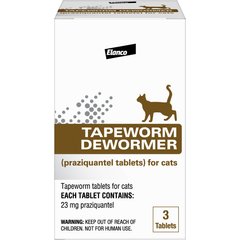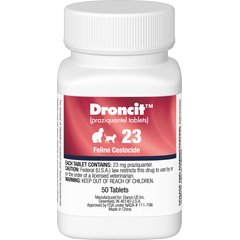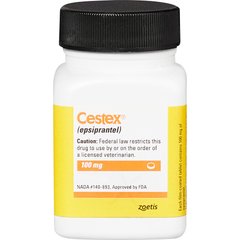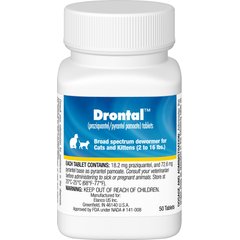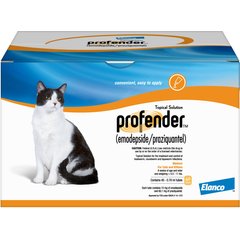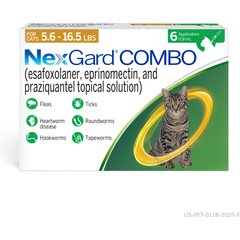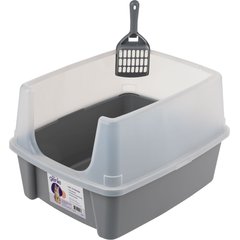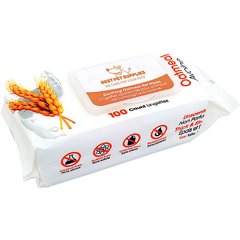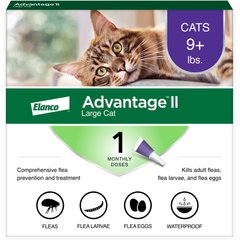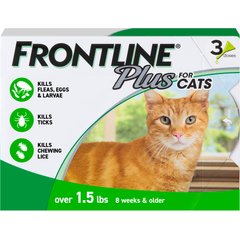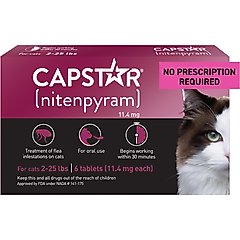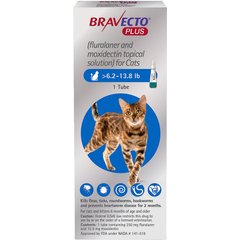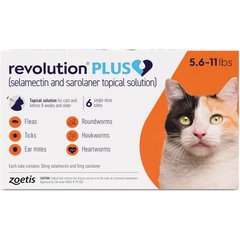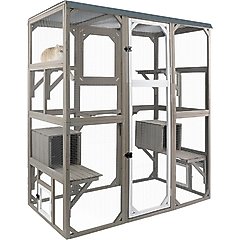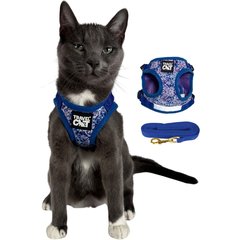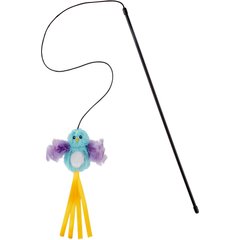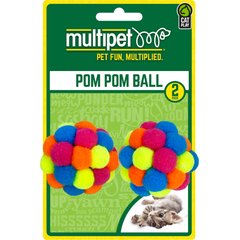Tapeworms in Cats: Causes, Symptoms, and Treatment
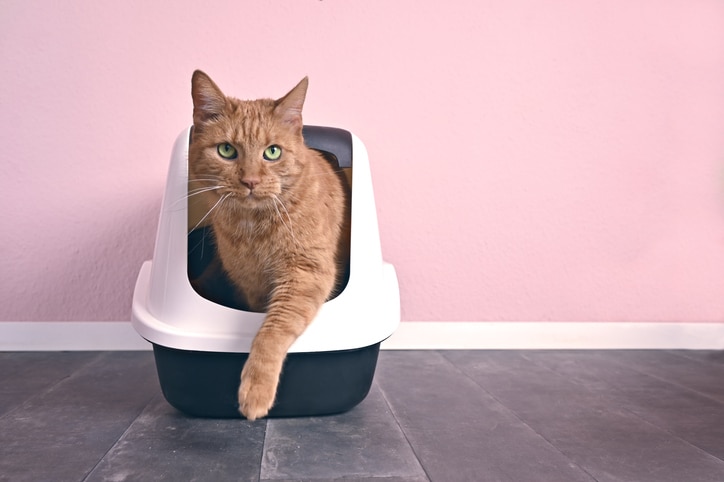
Photo by Lightspruch/iStock/Getty Images Plus
If you’ve noticed something that looks like rice stuck to your cat’s bottom, you might be dealing with tapeworms.
You may also see the “rice” on their bedding or in their litterbox. The good news is that tapeworms in cats are treatable, and they rarely cause serious health issues.
Here’s how to identify and treat tapeworms to keep your feline friend healthy and comfortable.
Key Takeaways
- Tapeworms are intestinal parasites that commonly affect adult cats and older kittens.
- The most obvious sign of tapeworms is rice-like segments called proglottids around your cat's bottom, in their poop, or where they like to sleep.
- Cats typically get tapeworms by ingesting fleas or hunting rodents.
- Treatment with deworming medications is easy and effective.
- Prevention focuses on flea control and keeping your cat indoors.
What Are Tapeworms in Cats?
Tapeworms are long, flat parasites that attach themselves to the wall of a cat’s small intestine.
As they mature, tapeworms shed egg-containing segments called proglottids that are easily visible when they exit the body.
Types of tapeworms affecting cats include:
- Dipylidium caninum: This tapeworm is the most common and is usually seen after the ingestion of fleas.
- Taenia taeniaeformis: This tapeworm usually comes from the ingestion of prey, such as a mouse.
- Echinococcus: This tapeworm is very rare in cats, but can also be transmitted by eating prey. Its proglottids are very small so it can be difficult to diagnose, and it can cause potentially severe disease in people.
Symptoms of Tapeworms in Cats
The most obvious sign of common tapeworms is the proglottids themselves.
Tapeworm segments that have just left a cat’s digestive tract are white or off-white, and may move.
Single segments often look like flattened pieces of rice, but sometimes segments stick together and look more like short pieces of pasta. As they’re exposed to air the segments dry out, stop moving, harden, and become more yellow or goldenin color.
Other symptoms of tapeworms in cats are rarer, but they may include:
- Scooting their bottom across the floor
- Excessive licking of their hind end
- Diarrhea
- Vomiting, which may include tapeworms
- Weight loss
- Lethargy
While tapeworms aren’t usually dangerous to cats, heavy infestations can occasionally cause intestinal blockage. All suspected cases should be treated by your cat’s veterinarian.
How Cats Get Tapeworms
Cats can get tapeworms by ingesting hosts that carry tapeworm larvae:
- Flea ingestion: The most common way for cats to get tapeworms is for them to swallow fleas while grooming themselves. The fleas contain larval Dipylidium caninum tapeworms that mature into adults in the cat’s body.
- Hunting prey: Cats who hunt prey may contract Taenia or Echinococcus tapeworms from eating rodents that have larval tapeworms.
Tapeworms in cats are very common, particularly in adult cats and older kittens who are allowed to go outdoors. It’s one of the reasons that your cat should stay inside.
However, fleas and rodents do make their way into homes, so indoor-only cats can still get tapeworms.
Treatment for Tapeworm in Cats
If you think your cat has tapeworms, contact your veterinarian as soon as possible. They can help diagnose the problem with a physical examination, fecal testing, and other diagnostic exams.
Treatment for cat tapeworms is straightforward and effective, but you should always ask your veterinarian what option is best for your individual cat.
Medications may include:
Recommended Product
Recommended Product
Recommended Product
Recommended Product
Recommended Product
Recommended Product
Your veterinarian will recommend the safest and most effective tapeworm treatment for your cat.
How Can I Help My Cat Feel More Comfortable?
Side effects from tapeworm treatment are rare, and most cats recover quickly.
Here’s how to help their recovery:
Give the House a Good Cleaning
While Dipylidium and Taenia tapeworm segments won’t directly infect people or other pets (they have to pass through intermediate hosts first), no one wants to live with them.
Keep all areas of your home clean and rid them of fleas, which can further transmit tapeworms to other animals.
You can do this by:
- Vacuuming carpets, upholstered furniture, and floors, and properly disposing of vacuum bags
- Washing all bedding, clothing, and blankets in hot water, and drying it on high heat
Scoop Your Cat’s Litter Box Every Day
This is a good way to monitor your cat’s poop for tapeworms. If their old litter box is a bit worn out, it’s a good idea to replace it once treatment is underway. Try the Litter Genie Cat Litter Box, which is easy to monitor.
Recommended Product
Keep Your Cat Well Groomed
If your cat’s bottom is dirty or irritated, gently clean it with a soothing, pet-safe wipe, like the Best Pet Supplies Oatmeal Unscented Soothing Cat & Dog Grooming Wipes.
Recommended Product
Monitor Your Cat Closely
Keep an eye on your cat’s behavior and appetite, and contact your vet if you notice any unusual symptoms or if your cat doesn’t seem to be getting better.
Prevention of Tapeworm in Cats
Tapeworm treatment doesn’t protect against future infections, so prevention is key. For instance, it’s not unusual for a cat to be treated for tapeworms, then immediately be reinfected.
Here’s how you can keep your cat tapeworm-free.
Implement Year-Round Flea Control
Most tapeworms spread through fleas, so keeping your cat on flea prevention year-round is crucial. Apply flea treatments on the schedule recommended by your veterinarian.
It’s possible they might recommend nonprescription or prescription options.
Popular nonprescription flea control options include Advantage II Flea Spot Treatment for Cats, Frontline Plus Spot-On for Cats, and Capstar Flea Oral Treatment for Cats.
Recommended Products
Popular prescription flea control options include NexGard COMBO Topical for Cats, Bravecto Plus Topical Solution for Cats, and Revolution Plus Topical Solution for Cats.
Recommended Products
Keep Cats Indoors
An indoor lifestyle goes a long way toward preventing cats from hunting and eating rodents and becoming infested with fleas.
If your cat likes to go outdoors, consider a catio, like the Petscosset 59-in Outdoor Wooden Catio Cat Enclosure with Platforms.
Recommended Product
A stroller or leash walks are also great ways to help your cat get outdoors without roaming freely. Try the Frisco Dog & Cat Collapsible Stroller and the Travel Cat The True Adventurer Reflective Cat & Kitten Harness & Leash.
Recommended Products
It’s also important to provide your cat with fun toys indoors to satisfy their hunting instincts.
Some good options include the Frisco Bird with Feathers Teaser Wand Cat Toy with Catnip, Multipet Pompom Ball with Rattle Cat Toy, and the EYS Narwhal Unicorn Whale Flop & Jump Interactive Plush Cat Toy with Catnip.
Recommended Products
Practice Regular Deworming
If your cat is still getting tapeworms despite treatment, your veterinarian may recommend deworming them a few times a year. Follow your vet’s instructions to a tee for best results.
FAQs About Tapeworms in Cats
Can humans get tapeworms from cats?
Yes, but don’t panic. Humans can get some types of tapeworms from cats, but it’s rare. A human could accidentally eat a cat flea and be infected with the Dipylidium caninum tapeworm. Eggs shed by Echinococcus tapeworms can directly infecthumans, but infections are rare and not commonly associated with cats. See your doctor if you’re concerned.
Can I get tapeworms from my cat licking me?
No. You cannot get tapeworms from your cat licking you. Common tapeworms require an intermediate host (like a flea or rodent) to complete their life cycle.
Can I cuddle my cat if they have worms?
Yes. You can cuddle your cat if they have tapeworms. Direct contact with your cat won’t transmit tapeworms. However, it’s always best to wash your hands after handling your cat and get your cat treated for tapeworms as soon as possible.
Can tapeworms live in cat litter?
Not exactly. Tapeworm segments called proglottids can be found in cat litter, but they get there after being expelled in a cat’s feces, not because they are living there permanently. Treating your cat for tapeworms and dumping out the litterbox, cleaning it, and adding fresh litter should rid the litter box of them.
Can I treat my cat’s tapeworms at home?
Maybe. It’s always best to ask your veterinarian how to treat your cat. If your vet recommends an over-the-counter option for tapeworms, then it’s OK to treat your cat at home. However, they may prefer to see your cat in person so they can ensure an accurate diagnosis.
